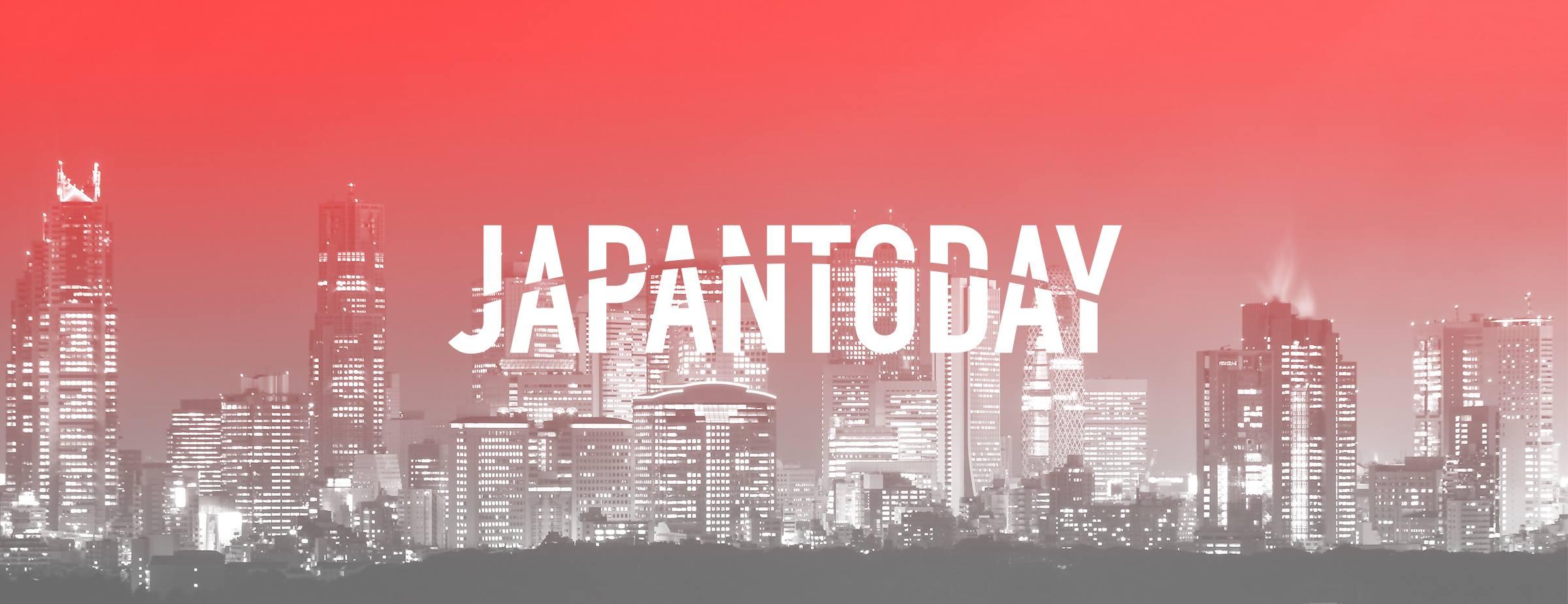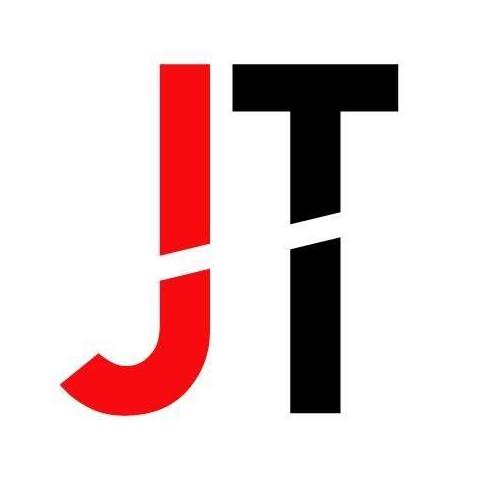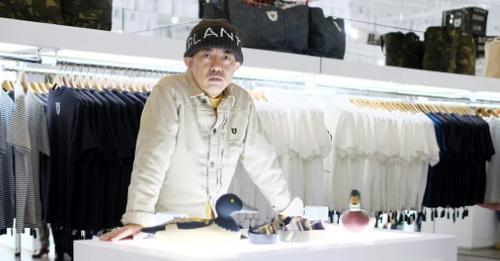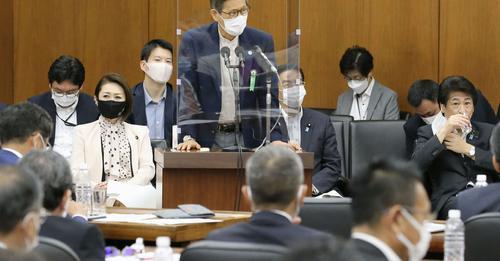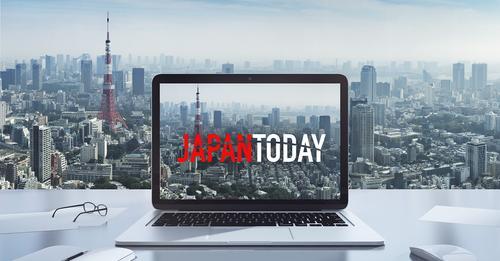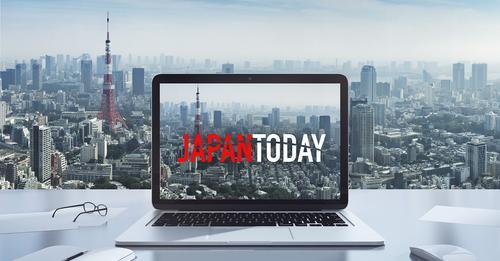Japan Today publishes original content, including interviews with celebrities and business executives, and translations of pop culture articles from popular Japanese magazines and newspapers.
-
1 людям нравится это
-
0 Записей
-
0 Фото
-
0 Видео
-
History and Facts
© 2025 Omaada - A global social and professionals networking platform
 Russian
Russian
Недавние обновления
-
Webinar: How to buy a house in Japan, all in cash
TOKYO -
The next installment in Real Estate Japan's popular series of webinars will cover the advantages and considerations for purchasing a home in all cash.
The seminar will be held online on Saturday Sept 18 from 11 a.m. to 12 p.m. (JST). Participation is free.
We will be discussing the basics of buying a home, including:
Real estate market trends
Interest rates
Financing options based on your visa status
Government subsidies to help you with a home purchase
Tax benefits and tax deductions
How to negotiate the purchase price
Other topics include:
Issues to consider when buying an akiya (vacant home) in Japan
How COVID-19 is affecting the Japanese real estate market
We will also be covering the advantages and considerations for purchasing a home in all cash.
This seminar is designed for foreign residents of Japan, but our partner LINC Inc. is also able to provide assistance to overseas residents who are interested in buying a home in Japan.
Q&A session will be held at the end of the online seminar
Make sure to take notes of questions you have during the seminar, as we will hold a Q&A session at the end. You’ll have the opportunity to ask questions about the home buying process and get first-hand expert advice!
Free, online consultations are available by appointment
For a private consultation, please indicate that you would like to request an appointment on the registration form. A consultant from LINC Inc. will contact you.
Our partner, LINC is able to offer personalized consultation, including the following.
Property information from REINS (the Japanese version of the Multiple Listing Service) as well as additional information from local agents.
Consulting with banks to find out how much you can borrow.
Provide Income/Expenditure spreadsheets for properties you are interested in, including costs involved in finding tenants.
Please note that LINC is only able to offer private consultations for buyers looking for a home in the city of Tokyo. We apologize for any inconvenience this may cause.
Properties currently for sale
All the agents listing properties on Real Estate Japan are able to assist clients in English and Japanese; some of our partner agents are also able to communicate in Traditional and Simplified Chinese.
Before attending the seminar, you may want to look through properties currently available on Real Estate Japan to see if there are any of interest. If so, you can inquire directly to the agent handling the listing by filling out the inquiry form on the property detail page. Please click the links below to see current listings:
All For Sale Property Listings
Investment Property Listings
Articles on Buying Property in Japan
Real Estate Japan regularly publishes articles on buying, selling, and investing in property in Japan, covering a wide of topics from data and market reports to macroeconomic trends and featured properties from around the country.
Here are a few of our most popular articles on home buying:
Guide to buying a home in Japan
Where do foreigners wants to buy homes in Tokyo — April 2021 Edition
Sales of pre-owned apartments and homes in greater Tokyo reach record high in 2021
Average price of an apartment in Japan in 2020 — Ranked by Prefecture
Questions to ask when buying a condominium in Japan
What to ask before buying a vacant house in Japan
Where do foreigners want to buy homes in Tokyo? Here are the Top 5 most popular stations
Please visit the Resources section to see all of our articles.
Speakers
GPlus Media Inc
Yasuhiro Kitagawa
Yasuhiro has been with Real Estate Japan for six years. He studied and worked in the U.S. for over ten years before returning to Japan to work in the Japanese real estate industry. He is passionate about improving transparency and access to the Japanese real estate market for Japanese and foreigners alike. Yasuhiro is head of Real Estate Japan's investment support services for foreigners.
LINC Inc
Shinichi Kawamura
Chief Executive Officer
After years of managerial experience at one of the world's leading homebuilders in Japan, he received an MBA while working overseas. He specializes in providing consultation services in the real estate industry by partnering with professionals such lawyers, accountants, architects, and designers, etc. to find optimal solutions for clients.
Webinar details
Host: Real Estate Japan
Date: Sept 18, 11 a.m. - 12 p.m.
Location: This seminar will be held online and virtually hosted in Tokyo
Participation: Free
Seats: 30
Register
To register for this seminar click on the link below.
Register for this event on GoToWebinar
You will be taken to the registration form on GoToWebinar, our seminar platform partner site.
After you complete online registration, you will receive a confirmation email from GoToWebinar.
Click on the link in the registration email to join the seminar on the date and time of the event.
If it is the first time you will be joining us on GoToWebinar, you will be asked to install the GoToWebinar software on your device. Installation takes about five minutes.
Please note that the number of attendees is limited to 30 people. Once the registration limit has been reached, we aren’t able to add attendees to the list. We thank you for your understanding on this.Webinar: How to buy a house in Japan, all in cash TOKYO - The next installment in Real Estate Japan's popular series of webinars will cover the advantages and considerations for purchasing a home in all cash. The seminar will be held online on Saturday Sept 18 from 11 a.m. to 12 p.m. (JST). Participation is free. We will be discussing the basics of buying a home, including: Real estate market trends Interest rates Financing options based on your visa status Government subsidies to help you with a home purchase Tax benefits and tax deductions How to negotiate the purchase price Other topics include: Issues to consider when buying an akiya (vacant home) in Japan How COVID-19 is affecting the Japanese real estate market We will also be covering the advantages and considerations for purchasing a home in all cash. This seminar is designed for foreign residents of Japan, but our partner LINC Inc. is also able to provide assistance to overseas residents who are interested in buying a home in Japan. Q&A session will be held at the end of the online seminar Make sure to take notes of questions you have during the seminar, as we will hold a Q&A session at the end. You’ll have the opportunity to ask questions about the home buying process and get first-hand expert advice! Free, online consultations are available by appointment For a private consultation, please indicate that you would like to request an appointment on the registration form. A consultant from LINC Inc. will contact you. Our partner, LINC is able to offer personalized consultation, including the following. Property information from REINS (the Japanese version of the Multiple Listing Service) as well as additional information from local agents. Consulting with banks to find out how much you can borrow. Provide Income/Expenditure spreadsheets for properties you are interested in, including costs involved in finding tenants. Please note that LINC is only able to offer private consultations for buyers looking for a home in the city of Tokyo. We apologize for any inconvenience this may cause. Properties currently for sale All the agents listing properties on Real Estate Japan are able to assist clients in English and Japanese; some of our partner agents are also able to communicate in Traditional and Simplified Chinese. Before attending the seminar, you may want to look through properties currently available on Real Estate Japan to see if there are any of interest. If so, you can inquire directly to the agent handling the listing by filling out the inquiry form on the property detail page. Please click the links below to see current listings: All For Sale Property Listings Investment Property Listings Articles on Buying Property in Japan Real Estate Japan regularly publishes articles on buying, selling, and investing in property in Japan, covering a wide of topics from data and market reports to macroeconomic trends and featured properties from around the country. Here are a few of our most popular articles on home buying: Guide to buying a home in Japan Where do foreigners wants to buy homes in Tokyo — April 2021 Edition Sales of pre-owned apartments and homes in greater Tokyo reach record high in 2021 Average price of an apartment in Japan in 2020 — Ranked by Prefecture Questions to ask when buying a condominium in Japan What to ask before buying a vacant house in Japan Where do foreigners want to buy homes in Tokyo? Here are the Top 5 most popular stations Please visit the Resources section to see all of our articles. Speakers GPlus Media Inc Yasuhiro Kitagawa Yasuhiro has been with Real Estate Japan for six years. He studied and worked in the U.S. for over ten years before returning to Japan to work in the Japanese real estate industry. He is passionate about improving transparency and access to the Japanese real estate market for Japanese and foreigners alike. Yasuhiro is head of Real Estate Japan's investment support services for foreigners. LINC Inc Shinichi Kawamura Chief Executive Officer After years of managerial experience at one of the world's leading homebuilders in Japan, he received an MBA while working overseas. He specializes in providing consultation services in the real estate industry by partnering with professionals such lawyers, accountants, architects, and designers, etc. to find optimal solutions for clients. Webinar details Host: Real Estate Japan Date: Sept 18, 11 a.m. - 12 p.m. Location: This seminar will be held online and virtually hosted in Tokyo Participation: Free Seats: 30 Register To register for this seminar click on the link below. Register for this event on GoToWebinar You will be taken to the registration form on GoToWebinar, our seminar platform partner site. After you complete online registration, you will receive a confirmation email from GoToWebinar. Click on the link in the registration email to join the seminar on the date and time of the event. If it is the first time you will be joining us on GoToWebinar, you will be asked to install the GoToWebinar software on your device. Installation takes about five minutes. Please note that the number of attendees is limited to 30 people. Once the registration limit has been reached, we aren’t able to add attendees to the list. We thank you for your understanding on this.0 Комментарии 0 Поделились 0 предпросмотрВойдите, чтобы отмечать, делиться и комментировать! -
New adidas Hachiko sneakers pay homage to Shibuya’s famous loyal dog
TOKYO - Global sporting brands have been spoiling Japanese customers over the years with exclusive kicks dedicated to Super Mario, Godzilla and even Hello Kitty. Now, sporting giant adidas is paying homage to a real-life Japanese character with its latest sneaker release, and it’s simply called Hachiko.
For those who don’t know the story behind the name — Hachiko was an Akita dog who would wait outside Shibuya Station every day for his master, a professor at the University of Tokyo, to return home. On one fateful day in 1925, however, the professor didn’t return home, as he had died from a cerebral hemorrhage while at work. Yet Hachiko sat there waiting for his master, returning to the station day after day to faithfully await his return.
Now, the faithful dog is being remembered with a new pair of Adidas sneakers, created in collaboration with Harajuku-based sneaker store atmos.
The new sneakers are the third drop in the limited-edition “Shibuya Pack” created by Adidas and atmos.
The first instalment in the Shibuya Pack was Yoyogi Park, which captures the city park in autumn hues…
And the second was Denim, inspired by American casual street fashion, often seen on the streets of Shibuya, where it’s known as Amekaji.
In our opinion, none of these sneakers capture the heart and soul of Shibuya quite like the new Hachiko model, which also goes by the name Superstar Dog, given that they’re based on Adidas’ Superstar model, but feature a furry surface to resemble the fur of Hachiko.
The tongue on each shoe features a silver-colored plate with the trefoil logo engraved on it, while the midsole reveals another nod to Hachiko — the Dogenzaka address where its statue sits outside Shibuya Station.
Over the years, Hachiko has become a well-known symbol of Shibuya, so it’s fitting that the famous dog appear as part of the Shibuya Pack. And to add to the heartwarming nature of Hachiko’s story, part of the profits from sales of the shoes will be returned to Shibuya as part of the “Shibuya Ward Official Souvenir Project” to help the neighborhood. Official goods affiliated with the project bear the “You Make Shibuya” logo mark, and this logo appears on the inner sole of the shoes.
The Hachiko sneakers retail for 15,400 yen, and given that demand is expected to be high, they’ll be available to purchase via a lottery system, with applications being accepted online.
These are definitely going to be a sought-after pair of kicks, especially with atmos likening them to “the resurrection of Hachiko”, so best of luck getting your hands on them, and feet into them.New adidas Hachiko sneakers pay homage to Shibuya’s famous loyal dog TOKYO - Global sporting brands have been spoiling Japanese customers over the years with exclusive kicks dedicated to Super Mario, Godzilla and even Hello Kitty. Now, sporting giant adidas is paying homage to a real-life Japanese character with its latest sneaker release, and it’s simply called Hachiko. For those who don’t know the story behind the name — Hachiko was an Akita dog who would wait outside Shibuya Station every day for his master, a professor at the University of Tokyo, to return home. On one fateful day in 1925, however, the professor didn’t return home, as he had died from a cerebral hemorrhage while at work. Yet Hachiko sat there waiting for his master, returning to the station day after day to faithfully await his return. Now, the faithful dog is being remembered with a new pair of Adidas sneakers, created in collaboration with Harajuku-based sneaker store atmos. The new sneakers are the third drop in the limited-edition “Shibuya Pack” created by Adidas and atmos. The first instalment in the Shibuya Pack was Yoyogi Park, which captures the city park in autumn hues… And the second was Denim, inspired by American casual street fashion, often seen on the streets of Shibuya, where it’s known as Amekaji. In our opinion, none of these sneakers capture the heart and soul of Shibuya quite like the new Hachiko model, which also goes by the name Superstar Dog, given that they’re based on Adidas’ Superstar model, but feature a furry surface to resemble the fur of Hachiko. The tongue on each shoe features a silver-colored plate with the trefoil logo engraved on it, while the midsole reveals another nod to Hachiko — the Dogenzaka address where its statue sits outside Shibuya Station. Over the years, Hachiko has become a well-known symbol of Shibuya, so it’s fitting that the famous dog appear as part of the Shibuya Pack. And to add to the heartwarming nature of Hachiko’s story, part of the profits from sales of the shoes will be returned to Shibuya as part of the “Shibuya Ward Official Souvenir Project” to help the neighborhood. Official goods affiliated with the project bear the “You Make Shibuya” logo mark, and this logo appears on the inner sole of the shoes. The Hachiko sneakers retail for 15,400 yen, and given that demand is expected to be high, they’ll be available to purchase via a lottery system, with applications being accepted online. These are definitely going to be a sought-after pair of kicks, especially with atmos likening them to “the resurrection of Hachiko”, so best of luck getting your hands on them, and feet into them.0 Комментарии 0 Поделились 0 предпросмотр -
Japan's streetwear veteran Nigo takes over at Kenzo
PARIS - Streetwear pioneer Nigo was named Wednesday as the new artistic director of Kenzo, luxury group LVMH announced.
Known for his celebrity collaborations, Nigo takes over from Portuguese designer Felipe Oliveira Baptista, who quit the post in June after just two years.
Kenzo was founded in 1970 by Japan's Kenzo Takada, who died from COVID-19 complications in October.
Nigo, real name Tomoaki Nagao, made his name with his label A Bathing Ape, or BAPE, in the 1990s -- its marriage of streetwear and high fashion making it precursor to brands like Supreme.
He has partnered with big names like Pharrell Williams, Kanye West, Coca-Cola and Adidas -- and last year released a men's collection with Virgil Abloh of Louis Vuitton.
In the statement announcing his appointment, Nigo noted the parallels with the founder of Kenzo.
"I was born the year that Kenzo Takada opened his first shop in Paris. We both studied at the same school of fashion in Tokyo. In 1993, the year that Kenzo joined the LVMH group, I began my career in fashion," he said.
"Bringing to life the spirit and savoir-faire of Kenzo Takada to create a new Kenzo is the biggest challenge in my 30-year career," he added.
Sidney Toledano, CEO of LVMH's fashion section, welcomed the "arrival of an extremely talented Japanese talent" that will open "a new page in the history of the house".Japan's streetwear veteran Nigo takes over at Kenzo PARIS - Streetwear pioneer Nigo was named Wednesday as the new artistic director of Kenzo, luxury group LVMH announced. Known for his celebrity collaborations, Nigo takes over from Portuguese designer Felipe Oliveira Baptista, who quit the post in June after just two years. Kenzo was founded in 1970 by Japan's Kenzo Takada, who died from COVID-19 complications in October. Nigo, real name Tomoaki Nagao, made his name with his label A Bathing Ape, or BAPE, in the 1990s -- its marriage of streetwear and high fashion making it precursor to brands like Supreme. He has partnered with big names like Pharrell Williams, Kanye West, Coca-Cola and Adidas -- and last year released a men's collection with Virgil Abloh of Louis Vuitton. In the statement announcing his appointment, Nigo noted the parallels with the founder of Kenzo. "I was born the year that Kenzo Takada opened his first shop in Paris. We both studied at the same school of fashion in Tokyo. In 1993, the year that Kenzo joined the LVMH group, I began my career in fashion," he said. "Bringing to life the spirit and savoir-faire of Kenzo Takada to create a new Kenzo is the biggest challenge in my 30-year career," he added. Sidney Toledano, CEO of LVMH's fashion section, welcomed the "arrival of an extremely talented Japanese talent" that will open "a new page in the history of the house".0 Комментарии 0 Поделились 0 предпросмотр -
Japan's top COVID-19 adviser wary of easing restrictions
TOKYO - Japan's top COVID-19 adviser Shigeru Omi on Wednesday warned against hastily easing anti-pandemic restrictions on people's lives and called for relaxing measures only after the state of emergency is lifted.
His remarks came as the government seeks to ease restrictions around November, when it aims to complete vaccinating all people who wish to be inoculated. The plan includes letting eateries provide alcohol and allowing people to travel across prefectural borders and hold big events with more attendees even if the state of emergency is still in force.
"Even though the vaccination rate has risen, there will certainly be a rebound if we suddenly ease restrictions," Omi told the House of Representatives' health committee.
"I believe the path we should take is to gradually lift them after the state of emergency expires and the number of infections comes down to a certain level," Omi added.
With the medical system still under strain from an influx of COVID-19 patients, much of Japan will remain under a state of emergency through Sept 30. Government data shows slightly over half of Japan's population has been fully vaccinated so far against COVID-19.
Looking ahead, Omi warned that the fight against the new virus is expected to last for a long time. "It may take about two to three years until the public no longer has to worry about COVID-19, like the influenza in which we have vaccines and medications," he said.
In the same committee meeting, health minister Norihisa Tamura said the government remains on guard with an eye out for a potential "sixth wave" of infections.
"It is a fact that the number of new coronavirus cases is rapidly decreasing on a national level," Tamura said, but added that he worries about more people interacting with others in line with children going back to school this month, a drop in ventilation during winter, and an increase in socializing toward the yearend.
Over 60 percent of the population is expected to be fully vaccinated by the end of September, bringing Japan on a par with major European countries such as Britain and France, according to the government.
Japan initially lagged far behind other major economies in inoculating its population. Facing criticism, the government has made relatively fast progress since, setting up mass inoculation sites and offering workplace vaccinations.Japan's top COVID-19 adviser wary of easing restrictions TOKYO - Japan's top COVID-19 adviser Shigeru Omi on Wednesday warned against hastily easing anti-pandemic restrictions on people's lives and called for relaxing measures only after the state of emergency is lifted. His remarks came as the government seeks to ease restrictions around November, when it aims to complete vaccinating all people who wish to be inoculated. The plan includes letting eateries provide alcohol and allowing people to travel across prefectural borders and hold big events with more attendees even if the state of emergency is still in force. "Even though the vaccination rate has risen, there will certainly be a rebound if we suddenly ease restrictions," Omi told the House of Representatives' health committee. "I believe the path we should take is to gradually lift them after the state of emergency expires and the number of infections comes down to a certain level," Omi added. With the medical system still under strain from an influx of COVID-19 patients, much of Japan will remain under a state of emergency through Sept 30. Government data shows slightly over half of Japan's population has been fully vaccinated so far against COVID-19. Looking ahead, Omi warned that the fight against the new virus is expected to last for a long time. "It may take about two to three years until the public no longer has to worry about COVID-19, like the influenza in which we have vaccines and medications," he said. In the same committee meeting, health minister Norihisa Tamura said the government remains on guard with an eye out for a potential "sixth wave" of infections. "It is a fact that the number of new coronavirus cases is rapidly decreasing on a national level," Tamura said, but added that he worries about more people interacting with others in line with children going back to school this month, a drop in ventilation during winter, and an increase in socializing toward the yearend. Over 60 percent of the population is expected to be fully vaccinated by the end of September, bringing Japan on a par with major European countries such as Britain and France, according to the government. Japan initially lagged far behind other major economies in inoculating its population. Facing criticism, the government has made relatively fast progress since, setting up mass inoculation sites and offering workplace vaccinations.0 Комментарии 0 Поделились 0 предпросмотр -
Nuclear reactor in Shimane passes safety review
TOKYO - A reactor in Shimane Prefecture, installed in the country's sole nuclear plant built in a prefectural capital, cleared a national safety screening on Wednesday.
The No. 2 unit of Chugoku Electric Power Co's nuclear plant in Matsue, became the 17th reactor across a total of 10 nuclear plants nationwide to pass stricter safety standards introduced after the Fukushima nuclear crisis in 2011.
It is a boiling water reactor, the same type as those installed at Tokyo Electric Power Company Holdings Inc.'s disaster-hit Fukushima Daiichi nuclear power plant.
With unanimous approval granted by the five members of the Nuclear Regulation Authority, Chugoku Electric will aim to complete construction work under the safety standards by the end of the current fiscal year through next March.
But the timing for restarting the No. 2 unit remains undecided, as the utility needs to obtain the consent of the city of Matsue and Shimane Prefecture.
Close attention is also being paid to the stance of neighboring Tottori Prefecture, as it is located within a 30-kilometer radius of the nuclear plant.
The population residing in the 30-km radius totals roughly 460,000, the third-largest following that of Japan Atomic Power Co's Tokai No. 2 nuclear plant in Ibaraki Prefecture and Chubu Electric Power Co's Hamaoka nuclear plant in Shizuoka Prefecture.
Located near a geological fault in the area facing the Sea of Japan, the Shimane nuclear plant has constructed a wall reaching 15 meters above sea level on the assumption that a tsunami as high as 11.9 meters could reach the site if a major earthquake occurs.
The safety measures also include preparation for a potential eruption of Mt Sanbe in the prefecture, in which it is assumed up to 56 centimeters of volcanic ash could pile up at the plant.
Chugoku Electric applied for the screening of the No. 2 unit in December 2013. The plant's No. 1 reactor is undergoing work for decommissioning. In 2018, the utility also applied for safety screening for its No. 3 unit, which is currently under construction.
The utility expects to spend some 600 billion yen on safety measures for the entire nuclear plant.
Nuclear reactor in Shimane passes safety review TOKYO - A reactor in Shimane Prefecture, installed in the country's sole nuclear plant built in a prefectural capital, cleared a national safety screening on Wednesday. The No. 2 unit of Chugoku Electric Power Co's nuclear plant in Matsue, became the 17th reactor across a total of 10 nuclear plants nationwide to pass stricter safety standards introduced after the Fukushima nuclear crisis in 2011. It is a boiling water reactor, the same type as those installed at Tokyo Electric Power Company Holdings Inc.'s disaster-hit Fukushima Daiichi nuclear power plant. With unanimous approval granted by the five members of the Nuclear Regulation Authority, Chugoku Electric will aim to complete construction work under the safety standards by the end of the current fiscal year through next March. But the timing for restarting the No. 2 unit remains undecided, as the utility needs to obtain the consent of the city of Matsue and Shimane Prefecture. Close attention is also being paid to the stance of neighboring Tottori Prefecture, as it is located within a 30-kilometer radius of the nuclear plant. The population residing in the 30-km radius totals roughly 460,000, the third-largest following that of Japan Atomic Power Co's Tokai No. 2 nuclear plant in Ibaraki Prefecture and Chubu Electric Power Co's Hamaoka nuclear plant in Shizuoka Prefecture. Located near a geological fault in the area facing the Sea of Japan, the Shimane nuclear plant has constructed a wall reaching 15 meters above sea level on the assumption that a tsunami as high as 11.9 meters could reach the site if a major earthquake occurs. The safety measures also include preparation for a potential eruption of Mt Sanbe in the prefecture, in which it is assumed up to 56 centimeters of volcanic ash could pile up at the plant. Chugoku Electric applied for the screening of the No. 2 unit in December 2013. The plant's No. 1 reactor is undergoing work for decommissioning. In 2018, the utility also applied for safety screening for its No. 3 unit, which is currently under construction. The utility expects to spend some 600 billion yen on safety measures for the entire nuclear plant.0 Комментарии 0 Поделились 0 предпросмотр -
Japan exports slow as supply chain hiccups hit factories
TOKYO - Japan’s exports rose 26% in August from a year earlier, preliminary data released Thursday showed, below analysts’ forecasts, as supply chain disruptions hit manufacturers.
The 6.6 trillion yen ($60 billion) in exports compared with 5.2 trillion yen a year earlier, when the economy was just beginning to recover from the initial impact of the coronavirus pandemic.
Analysts had forecast an increase of more than 30%. Exports rose 37% year-on-year in July.
The figures showed the world’s third largest economy logged a trade deficit of 635 billion yen ($5.8 billion), as imports surged nearly 45% to 7.24 trillion yen ($66 billion), driven largely by imports of oil, gas and coal.
Tokyo and some other regions remain in a state of emergency due to outbreaks spurred largely by the delta variant of COVID-19. The strong rise in imports suggests that consumer demand has remained relatively strong, said Marcel Thieliant of Capital Economics.
However, “the external trade data suggest that net exports may knock off around 0.3 percentage points from Q3 GDP growth," he said in an analysis.
Overall exports to the U.S. rose 23% and shipments to Asia climbed 26%. But exports to China were weaker, rising almost 13%.
Japan's exports of machinery and other factory equipment will likely remain strong in coming months as regional economies emerge from recent waves of pandemic lockdowns, economists said.
But auto manufacturers have had to slow production as they struggle with shortages of computer chips and other parts due to soaring demand for IT products.
The data showed exports of cars slipped 1.5% in August, while imports of oil and other fuels surged 21%.
Japan exports slow as supply chain hiccups hit factories TOKYO - Japan’s exports rose 26% in August from a year earlier, preliminary data released Thursday showed, below analysts’ forecasts, as supply chain disruptions hit manufacturers. The 6.6 trillion yen ($60 billion) in exports compared with 5.2 trillion yen a year earlier, when the economy was just beginning to recover from the initial impact of the coronavirus pandemic. Analysts had forecast an increase of more than 30%. Exports rose 37% year-on-year in July. The figures showed the world’s third largest economy logged a trade deficit of 635 billion yen ($5.8 billion), as imports surged nearly 45% to 7.24 trillion yen ($66 billion), driven largely by imports of oil, gas and coal. Tokyo and some other regions remain in a state of emergency due to outbreaks spurred largely by the delta variant of COVID-19. The strong rise in imports suggests that consumer demand has remained relatively strong, said Marcel Thieliant of Capital Economics. However, “the external trade data suggest that net exports may knock off around 0.3 percentage points from Q3 GDP growth," he said in an analysis. Overall exports to the U.S. rose 23% and shipments to Asia climbed 26%. But exports to China were weaker, rising almost 13%. Japan's exports of machinery and other factory equipment will likely remain strong in coming months as regional economies emerge from recent waves of pandemic lockdowns, economists said. But auto manufacturers have had to slow production as they struggle with shortages of computer chips and other parts due to soaring demand for IT products. The data showed exports of cars slipped 1.5% in August, while imports of oil and other fuels surged 21%.0 Комментарии 0 Поделились 0 предпросмотр -
Ohtani, Osaka among TIME's 100 most influential people of 2021
NEW YORK
Three Japanese have been named in TIME Magazine's list of "100 Most Influential People of 2021" which categorizes people judged to have had the most impact this year into icons, pioneers, titans, artists, leaders, and innovators.
Athletes Shohei Ohtani and Naomi Osaka were named "Icons" along with Prince Harry and his wife Meghan who are showcased on one of the magazine's seven worldwide covers. Architect Kengo Kuma, who designed the centerpiece stadium for the Tokyo Olympics, is listed under "Innovators."
Other prominent names featured on the unranked list are U.S. President Joe Biden, Olympic gymnast Simone Biles, singer-songwriter Billie Eilish and Britney Spears, as well as billionaire Jensen Huang, who cofounded graphics-chip maker Nvidia.
"Shohei Ohtani is just the second baseball player to ever be selected to TIME Magazine's annual list of the 100 most influential people in the world," tweeted Los Angeles Angels Communications Manager Matt Birch.
According to Birch, Taiwan's Wang Chien-ming in 2007, then a pitcher for the New York Yankees, is the other player. He also said Ichiro Suzuki was a finalist in 2008 but did not make the final list that year.
The blurb on Ohtani, the Angels' two-way sensation and one of the front-runners for American League MVP, was written by former MLB star-turned ESPN on-air talent Alex Rodriguez.
"If you were to Frankenstein every unique talent into one player, you'd get Shohei Ohtani. He has the power of Bryce Harper, the pitching of Max Scherzer and the speed of Trea Turner," Rodriguez said, highlighting Ohtani's talent across every facet of the game.
The note on tennis star Osaka, who made the list for the third year in a row, was written by Seattle Seahawks quarterback Russell Wilson.
"Naomi Osaka's humility and dedication to others has been spectacular to watch. It's incredibly meaningful that she has been able to talk honestly about struggling with her mental health and share with us her vulnerability," Wilson wrote.Ohtani, Osaka among TIME's 100 most influential people of 2021 NEW YORK Three Japanese have been named in TIME Magazine's list of "100 Most Influential People of 2021" which categorizes people judged to have had the most impact this year into icons, pioneers, titans, artists, leaders, and innovators. Athletes Shohei Ohtani and Naomi Osaka were named "Icons" along with Prince Harry and his wife Meghan who are showcased on one of the magazine's seven worldwide covers. Architect Kengo Kuma, who designed the centerpiece stadium for the Tokyo Olympics, is listed under "Innovators." Other prominent names featured on the unranked list are U.S. President Joe Biden, Olympic gymnast Simone Biles, singer-songwriter Billie Eilish and Britney Spears, as well as billionaire Jensen Huang, who cofounded graphics-chip maker Nvidia. "Shohei Ohtani is just the second baseball player to ever be selected to TIME Magazine's annual list of the 100 most influential people in the world," tweeted Los Angeles Angels Communications Manager Matt Birch. According to Birch, Taiwan's Wang Chien-ming in 2007, then a pitcher for the New York Yankees, is the other player. He also said Ichiro Suzuki was a finalist in 2008 but did not make the final list that year. The blurb on Ohtani, the Angels' two-way sensation and one of the front-runners for American League MVP, was written by former MLB star-turned ESPN on-air talent Alex Rodriguez. "If you were to Frankenstein every unique talent into one player, you'd get Shohei Ohtani. He has the power of Bryce Harper, the pitching of Max Scherzer and the speed of Trea Turner," Rodriguez said, highlighting Ohtani's talent across every facet of the game. The note on tennis star Osaka, who made the list for the third year in a row, was written by Seattle Seahawks quarterback Russell Wilson. "Naomi Osaka's humility and dedication to others has been spectacular to watch. It's incredibly meaningful that she has been able to talk honestly about struggling with her mental health and share with us her vulnerability," Wilson wrote.0 Комментарии 0 Поделились 0 предпросмотр
Больше



